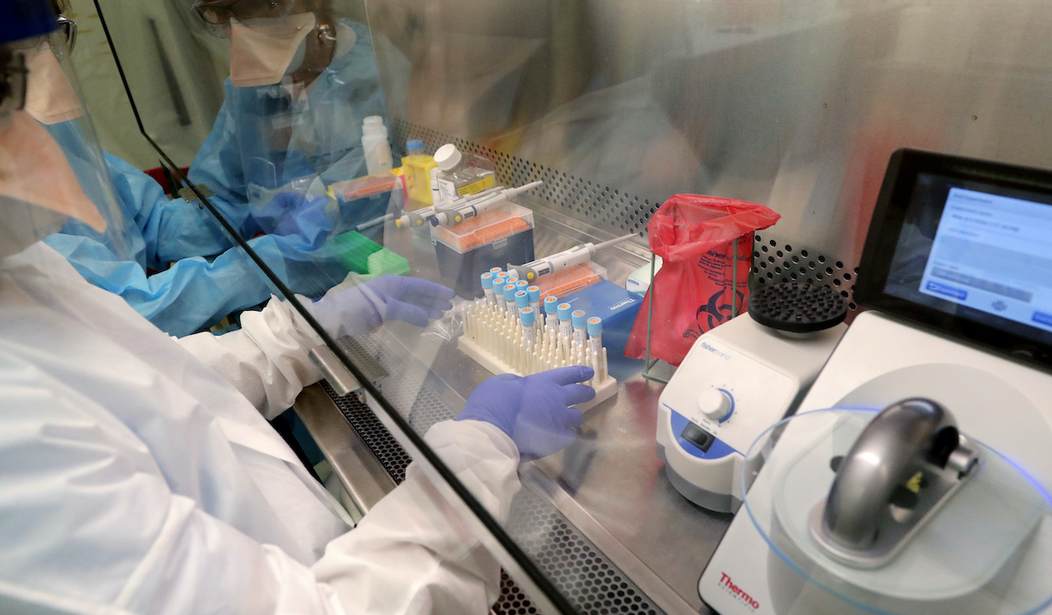COVID-19 is so new and information is changing so rapidly that it is difficult to separate fact from fiction and truth from partial truth. Like everyone else, I'm just trying to make sense of the evolving information.
Many of us have been monitoring the daily reports measuring the number of deaths relative to the number of cases. We've been treated to crash courses in lay epidemiology via daily press briefings and voluminous articles.
We understand that the administration and state governments have been trying to "flatten the curve" of the coronavirus by slowing its spread. The main purpose, as has now been clarified, is to reduce the velocity of the contagion so that our hospitals and necessary equipment are not overwhelmed, which would result in more deaths.
Though many didn't grasp this initially, flattening the curve doesn't greatly reduce the overall number of deaths, except for those saved by reducing the burden on hospitals and others saved by lifesaving therapeutic treatments and vaccines developed with the extra time flattening provides.
Many have suggested that the estimated death rates have been grossly overstated because the numerator (number of deaths) has been exaggerated and the denominator (number of people infected) has been understated.
They say the numerator was inflated because many deaths actually caused by the flu were attributed to COVID-19, and because every death of a person with the virus in their system was treated as a death caused by the virus even though some other accompanying illness may have been the proximate cause.
Recommended
The denominator was likely understated because so many people had the disease before we were aware it was circulating here; many were asymptomatic and never got tested; and many who were symptomatic assumed they had the flu. Several recent studies have confirmed, through randomized antibody testing, that in certain locations, exponentially more people were infected than we'd assumed.
Stanford University researchers found that Santa Clara County in California had between 50 and 80 times more infections than officials were reporting. A separate antibody study showed that the number of coronavirus infections in Los Angeles County could be 28 to 55 times higher than the official count. A just-released study estimates that some 2.7 million New Yorkers may have been infected -- more than 10 times the state's confirmed cases to date.
Obviously, we'll know more when antibody testing is conducted throughout the country. But these tests strongly indicate that the virus is less lethal by orders of magnitude than previously known.
Many argue that this emerging data proves we overreacted by shutting down our economy and wreaking such financial devastation. If we knew in December what we think we know now, this may have been true. Until comprehensive testing is performed and the data analyzed, however, we won't be sure of the virus' lethality. I suspect it will be more than that of the flu. If so and it is in fact as contagious as we fear, we might think twice before making final judgments as to what should or shouldn't have been done.
I think the critics' skepticism is based on their distrust of other experts who have ginned up fear over apocalyptic climate change based on computer models. Knowing how much disinformation those experts have spread, people are justifiably suspicious of what now appear be wildly erroneous coronavirus models that scared the world into a global economic shutdown.
People are still debating whether these initial models factored in mitigation measures, but we can certainly fault modelers for their absolutism and arrogance, and we can use this experience to challenge the credibility of climate change modelers on their projections.
So where does it leave us?
While there is still much we don't know, I am less cynical than some about the mitigation measures we've employed to slow the spread. If I weren't, I'd be freely moving about in public without fear of catching the virus. I do believe we have slowed the spread and saved lives.
But I am also very saddened by the immeasurable economic devastation and suffering. While some may be too readily dismissing the threat of the virus, others are unspeakably insensitive to the financial disruption and pain people are experiencing, and callous about mitigating it.
We have to be prudent moving forward. Even with these new findings on lethality, we have nowhere near approached herd immunity, so the virus is still highly contagious. We don't want to immediately reopen every aspect of our society if it would cause the virus to rebound, which would make the economic pain we've already suffered pointless -- and much worse. So, I think the administration is wise in recommending a phased-in approach and deferring, when practicable, to state authorities.
I trust that the more we learn and the more testing we have, the better we'll be able to combat the virus if it resurfaces in the fall and in subsequent years. Scientists will be armed with more widespread antibody tests as well as tests to determine whether people have the disease so that contact tracing can be used to find who they might have infected. Officials will also have developed efficient systems and strategies for preventing flare-ups from igniting full-blown outbreaks.
We can then employ a more targeted approach against the virus that will not cause economic devastation, as research confirms that the virus is far more deadly to certain groups: the elderly and those with certain underlying health conditions. Until we develop herd immunity, less vulnerable groups can freely move about, and more vulnerable ones can self-isolate.
As we reflect on this crisis, we must also reflect on our precious constitutional liberties and consider how quickly they can be compromised in actual or perceived national emergencies. While individuals and businesses deserve to receive relief funds from the government because it forced them to suspend their economic activities, we must now soberly consider our national debt and the existential threat it represents to the republic. Perhaps we will become more responsible about our out-of-control federal spending, which can only be rectified by entitlement reform -- a subject we can no longer afford to avoid.
Pray for America and those hurting from this pandemic.
David Limbaugh is a writer, author and attorney. His latest book is "Guilty by Reason of Insanity: Why the Democrats Must Not Win." Follow him on Twitter @davidlimbaugh and his website at www.davidlimbaugh.com.

























Join the conversation as a VIP Member